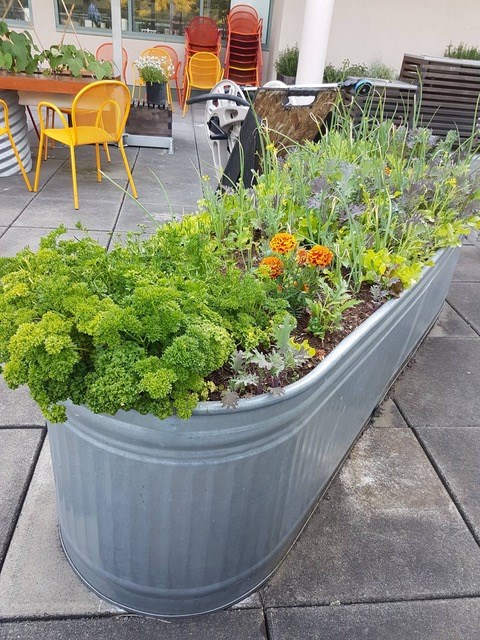The Richmond Garden Club recently had the honour of meeting a group of young people who volunteer their time to be the City of Richmond’s environmental stewards through a program called Green Ambassadors.
The student volunteers work with the City of Richmond and the Richmond School District to plan out a year-long program, creating strategies to promote environmental stewardship on issues like invasive species awareness, composting, diverting waste materials and water use in our city.
These highly energetic and passionate young people partner with like-minded groups in our area such as the Richmond Garden Club. The student volunteers get out into our community to pick up garbage in the parks and beaches, do some organic gardening, plant trees and work on habitat enhancement. The Green Ambassadors meet monthly at city hall to tackle different issues where they can learn to be the agents of change.
Richmond Garden Club was invited to one of their recent monthly meetings to showcase the benefits of eating locally grown food versus store-bought food shipped from all parts of the world.
During the meeting, we presented on how to grow your own food even if you only have a small patio or balcony.
There are obvious benefits from growing your own food such as controlling what fertilizers or chemicals, if any, will come in contact with your food. You choose when to harvest your food. Vegetables that ripen in the garden have more nutrients than store-bought vegetables that must be picked early. Picking a tomato for your salad just before you prepare it tastes so much better!
There are huge environmental benefits to growing your own food. Plants reduce pollution in the air by reducing carbon monoxide and giving off oxygen. Having a backyard garden means you don’t have to shop as much at the supermarket. Food in a supermarket has travelled very far to get there, using up a lot of energy.
For our wildlife, plants can be both their food source and their home. Lots of plants give animals, insects and reptiles more places to hide from predators. Many plants feed our pollinators to help keep our gardens growing.
Trees and plants absorb sound and help with noise pollution.
Growing your own food is very simple. Start small and plant things that you like to eat. Pick a spot in your yard that gets at least six hours of sunlight and access to water. Use contaminant-free soil. Consider using a raised garden bed so you can control the soil and nutrients. Check out local nurseries and West Coast Seeds to find out what grows well in Richmond.
Richmond’s Green Ambassadors will hopefully continue through to post-secondary to protect our environment and to educate our communities on sustainability and “going green.”
Join us Wednesday, January 24, 2018, at the Richmond Cultural Centre, 7700 Minoru Gate, 7:00pm, to hear our guest speaker, Nikoo Boroumand, who runs the Society Promoting Environment Conservation School Gardens Program. She is dedicated to inspiring young people to learn and take care of the earth, using school gardens and pollinator gardens as a learning tool. For more information visit richmondgardenclub.ca.



